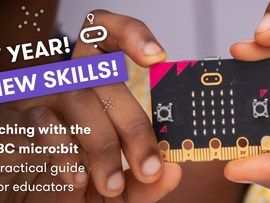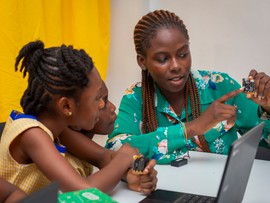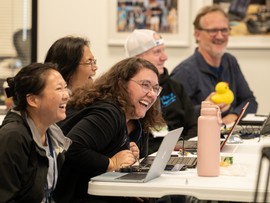Support your practical science teaching with the micro:bit
Use the BBC micro:bit to make science practical, as this multi-tasking device is packed with sensors to help you collect and analyse lots of rich scientific data.
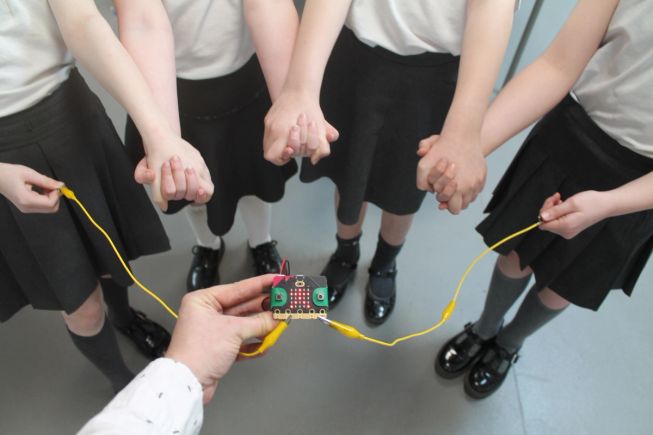
Four students holding hands, connected to a micro:bit, to make a human electrical circuit. Image: White Rose Science
The power of practical science

…all pupils should experience an exciting, inspiring and relevant science education at school that leaves them well-prepared to progress further in science, and well-informed about science in their everyday lives.

The Wellcome Trust (2017)
Research shows that practical, hands-on science learning is more engaging for young learners. But with many schools facing limited budgets and a lack of specialised equipment, it can be hard to plan and equip.
The micro:bit can help. This tiny computer is packed with sensors for sound, light, temperature, magnetism, movement and conductivity, and there are dozens of projects ready to go for classroom learning across many topics:
- General scientific skills of fair tests, data collection, observation over time, comparisons, predictions, interpretation and evaluation.
- Physics learning about electrical conductors, circuits, magnetism, light and sound.
- Biology topics investigating the effect of light and temperature on plant growth.
- Geography learning about climate, weather and using a compass to find your way.
- Maths skills for handling and visualising data.
Science professional development course
Discover how you use the micro:bit, indoors and outside, to compare temperature, sound, light in different locations, test conductivity and sound insulation properties of different materials and log temperature and light levels over long periods of time, with our free professional development course, 'Science exploration with the micro:bit'.
You don't need to include coding when using the micro:bit in science lessons, you can use ready-made projects to log data and explore the world around you. Everything is included with the course, student worksheets and code ready to transfer direct to your micro:bits.
Quick science projects
There's a wide range of Make it: code projects that you can use for practical science straight away. Each comes with a short introduction and coding video, or you can download the project code and get using it straight away. With these, you can take instant readings of temperature, light and sound levels in different places around you, test electrical conductivity of different materials and explore which materials make better sound insulators. You can also use the micro:bit as a data logger, recording data from its built-in sensors. Data is stored on your micro:bit even when its power source is disconnected.
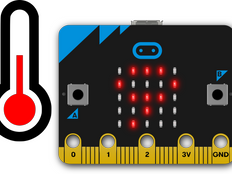
Make a simple thermometer with your micro:bit
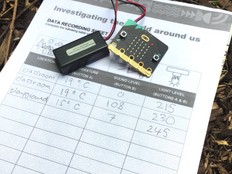
Measure temperature, sound and light levels around you
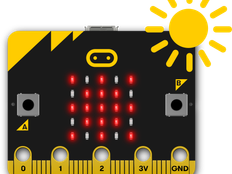
Make your micro:bit light up when the sun comes up
Science experiments with White Rose Science

[The micro:bit] definitely brought more engagement to the children. From a teacher’s perspective it was a lot more practical in terms of preparing resources and even tidying away resources... it was good to see how much easier it can be for the children to collect accurate data.

Stephanie Little, Science leader, Cottingley Village Academy
If you're ready to use the micro:bit in more detailed science investigations, try our new experiments, which were co-designed with White Rose Science. The experiments can be used by any teachers, although they are designed to complement White Rose Science’s existing scheme of work for primary science, which is developed to support practical science education. Our team developed the code for each project, which White Rose Science tested in the classroom with teachers and students.
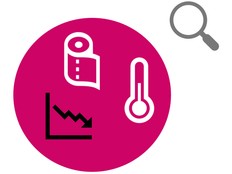
Investigate the thermal insulation properties of materials.

Complete an electrical circuit with your body!
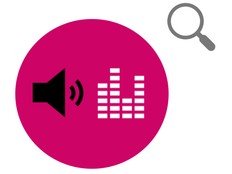
Measure sound over distance.
Taking it further
Explore all of our science-linked quick projects and experiments and let us know how you use the micro:bit in your teaching.
The micro:bit is a tiny computer that opens up a world of scientific investigation in the palms of your students' hands.
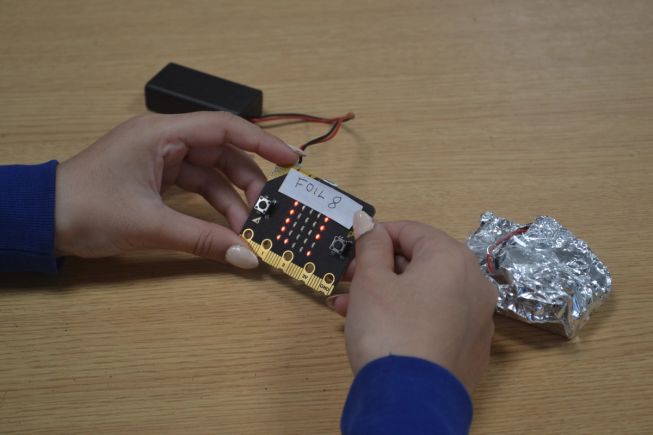
A student holds a micro:bit, linked to a micro:bit covered in foil, to test thermal insulation. Image: White Rose Science
